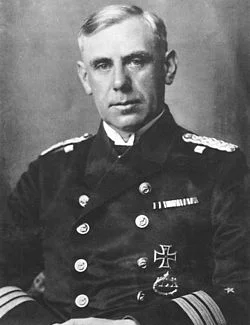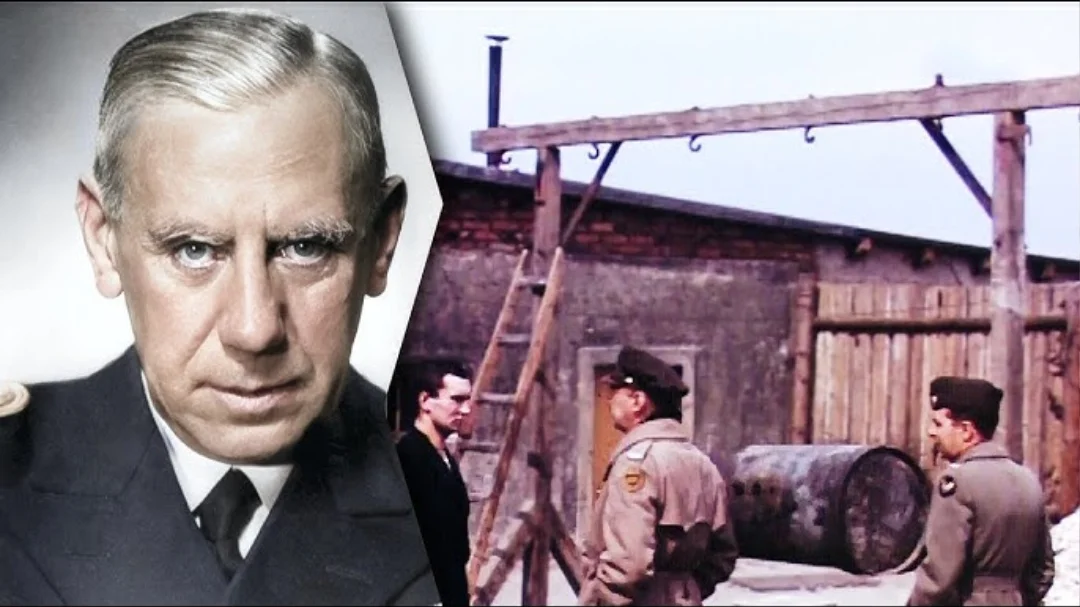Content Warning: This article discusses historical events involving conspiracy, imprisonment, and execution during World War II, which may be distressing. It aims to educate on the internal resistance against Nazism and the importance of moral courage, encouraging reflection on human rights and the dangers of totalitarianism.
Wilhelm Canaris (1887–1945), head of the Abwehr (German military intelligence) from 1935 to 1944, was a naval officer who secretly opposed the Nazi regime. Despite his loyalty to Germany, Canaris aided resistance efforts, including the July 20, 1944, bomb plot against Hitler. Arrested after the failed assassination, he was tried by the People’s Court and executed on April 9, 1945. Hanged naked with piano wire in Flossenbürg camp, his death symbolized the regime’s paranoia. This analysis, based on verified sources like Wikipedia and biographies such as Canaris by Basil Davidson, provides an objective overview of Canaris’s life, role in the Abwehr, resistance activities, and execution, fostering discussion on ethical dilemmas in wartime and the value of individual conscience.

Early Life and Naval Career
Wilhelm Canaris was born on January 1, 1887, in Aplerbeck (now Dortmund, Germany), to a middle-class family. He joined the Imperial German Navy in 1905, serving on cruisers and submarines during World War I (1914–1918). Captured after the Battle of Jutland in 1916, he escaped from a POW camp, demonstrating resourcefulness.
In the Weimar Republic (1918–1933), Canaris rose in the Reichsmarine, commanding submarines and intelligence operations. By 1935, as Hitler consolidated power, he became Abwehr chief, succeeding Conrad Patzig. The Abwehr gathered foreign intelligence but clashed with the SD (SS security service) under Reinhard Heydrich.
Canaris, a devout Catholic, harbored doubts about Nazism early, viewing it as morally corrupt.
The Abwehr and Internal Conflicts

As Abwehr head, Canaris reported to the High Command but navigated tensions with Heinrich Himmler and Heydrich, who sought to absorb intelligence under SS control. In 1937, Canaris arranged a tour of Sachsenhausen for Abwehr officers and Wehrmacht leaders, hosted by Theodor Eicke. Guests witnessed whippings and torture, which Canaris intended to expose Nazi inhumanity. Visitor Friedrich Wilhelm Heinz recalled Canaris’s aim to shock participants.
By 1937, Canaris confided to associates, “From top to bottom, they were all criminals who were ruining Germany.” When asked why he remained in place, he replied, “It has become my fate. If I go, Heydrich will come, and then everything will be lost. I have to sacrifice myself.”
The Blomberg-Fritsch Affair and Power Consolidation
The Nazis maneuvered to control the military. In January 1938, Defense Minister Werner von Blomberg resigned after his marriage to a former prostitute was revealed, raising questions about his judgment. Simultaneously, Army Commander-in-Chief Werner von Fritsch was falsely accused of homosexuality, forcing his resignation in February 1938.
Canaris and officers proved Fritsch’s innocence, but the affair allowed Hitler to assume command as Supreme Commander. This consolidated military power, sidelining traditionalists like Canaris and advancing Nazi control.
Resistance and the July 20 Plot
Canaris’s Abwehr became a haven for anti-Nazis, leaking intelligence to the Allies and aiding escape networks. He supported the Kreisau Circle and Operation Walküre, contingency plans for a post-Hitler government.
The July 20, 1944, bomb plot, led by Claus von Stauffenberg, aimed to assassinate Hitler. Canaris’s deputy, Hans Oster, was central. The plot failed, leading to mass arrests. Canaris was detained on July 23, 1944, at Flossenbürg.
Trial and Execution

Tried by the People’s Court under Roland Freisler on August 7, 1944, Canaris was accused of treason. Evidence from Abwehr files, seized by the Gestapo, implicated him in anti-Nazi activities. Freisler branded him a “traitor to the Fatherland.”
Sentenced to death, Canaris was executed on April 9, 1945, at Flossenbürg, one of 5,000 hanged in the plot’s aftermath. Stripped naked and hanged with piano wire from a meat hook, his death was agonizing, witnessed by fellow conspirators. Reports describe him praying calmly, his last words lost in the chaos.
Legacy and Reflection
Canaris’s double life—loyal officer and secret resistor—embodies moral complexity. Post-war, his role was debated; some saw him as a patriot, others as opportunistic. Declassified files confirmed his aid to Jews and Poles, earning Israel’s Righteous Among the Nations in 2007.
Historians like Ian Kershaw view him as a tragic figure, his sacrifice highlighting resistance’s risks.
Wilhelm Canaris’s journey from naval to Abwehr chief and piano-wire victim on April 9, 1945, reflects the perils of internal opposition. His efforts to undermine Nazism, from Sachsenhausen tours to the July plot, saved lives amid moral compromise. For history enthusiasts, Canaris’s story urges reflection on conscience in tyranny, human rights, and discrimination’s dangers. Verified sources like Wikipedia ensure accurate remembrance, inspiring vigilance to honor resisters and prevent authoritarianism.
